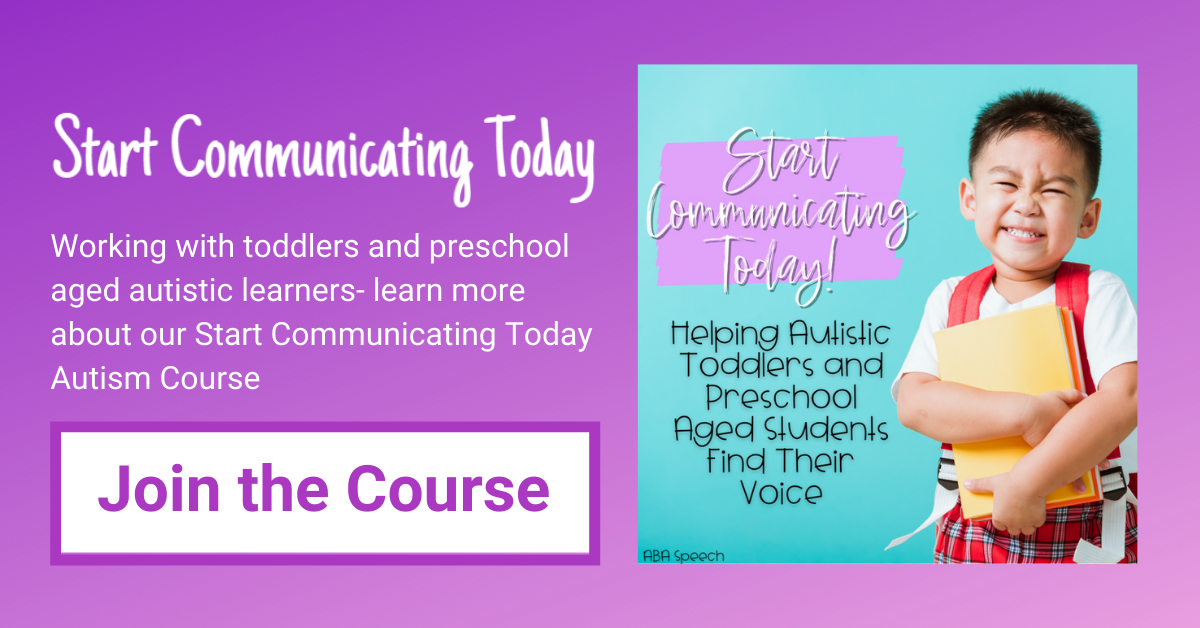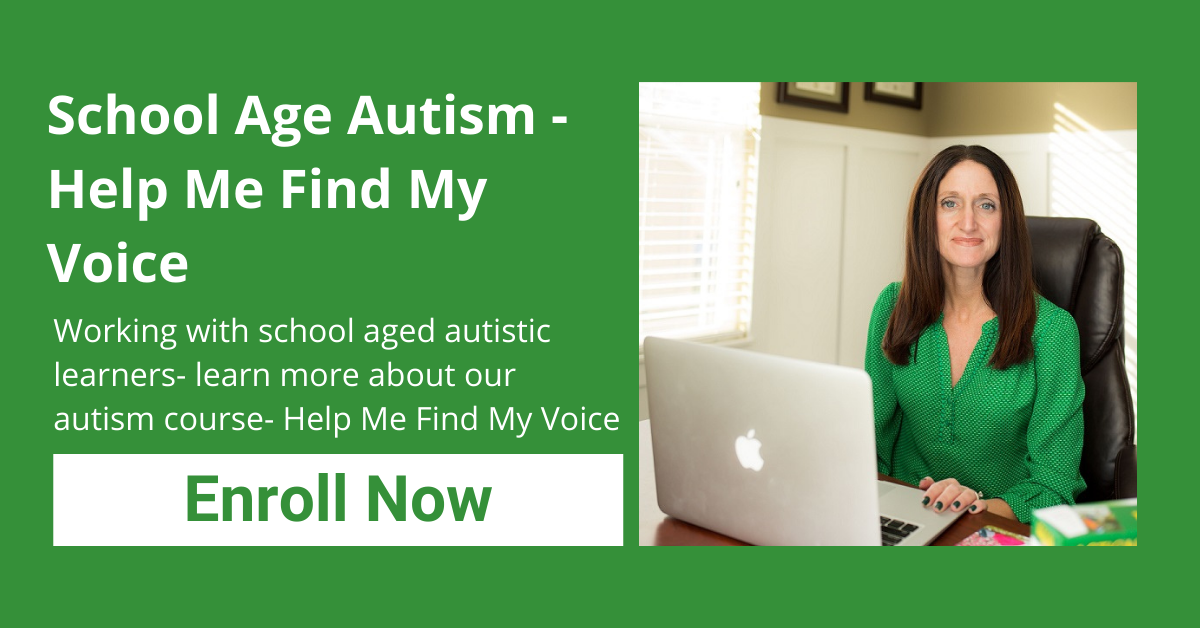“Well, I guess you better figure it out”....
Episode #060: How To Help Autistic Learners with Apraxia?
https://youtu.be/gd1VMfa8xfM
Apraxia is something a lot of my listeners are really interested in learning about. I had Dr. Edythe Strand on the two part episode, number 44. Today Dr. Jennifer Moore, SLP and co-owner of Brave Wings Therapy, brings us some strategies on understanding Apraxia with autism and applying the interventions to autistic learners.
What is Apraxia and is it common in autism?
Childhood Apraxia Speech is when the brain has difficulty planning and directing the muscles in a sequence to produce speech. Students with Apraxia might have difficult transitions from one syllable to another, you might see oral groping, vowel distortion, or errors in prosody. Autism rates have risen, current studies show approximately 1 in 44 children are diagnosed with autism. Although research does vary, within that subpopulation there is a coexistence of Apraxia in about ⅔ of those cases.
How can Apraxia interventions be applied to autistic learners?
Many SLP’s struggle because there are great evidence based assessments such as DTTC and REST for apraxia. However, with these approaches there are many prerequisite skills required for an authentic, best practice result that do not align with the “box” our autistic learners need. Effective assessments for these learners will require outside of the box thinking using a mix of these approaches with modifications unique to each learner.
When assessing an autistic learner, we really have to be dynamic in our approach. This means looking at sensory differences, current communication style, AAC use, receptive language, and cognitive ability and assessing each of these areas. Jennifer suggests structuring the therapy environment and before therapy activities to be conducive to the learner and the assessments.
Picking functional targets for autistic learners?
Jennifer uses the term “Power Words” as an important start for learning targets. This means words that are in high use for them in their everyday life that are going to be heard and used often with a big impact. With these functional words, SLPs can look at what the student already has in terms of the sounds and oral motor skills and how to shape it. The Principles for Motor Learning, guides instruction, practice, and retention for learners with apraxia and Jennifer provides great guidance on this.
This was such an informative episode on modifying assessment and treatment for Apraxia in autistic learners. You can find out more about Jennifer and her work on Instagram, Facebook, and on the Brave Wings Therapy website.
#autism #speechtherapy
Today’s Guest:
Dr. Jennifer Moore is a speech-language pathologist and co-owner of Brave Wings Therapy, a multidisciplinary private practice in Wayne, NJ. Dr. Moore has previously held positions in academia, home health, public schools, and a pediatric hospital. She is a PROMPT Certified Instructor and a subject matter expert in motor speech development and disorders and autism. She has taught over 50 workshops to SLPs in the US and has developed courses and materials for parents and SLPs.
She is also an adjunct professor at Kean University, where she teaches graduate coursework in pediatric motor speech disorders. Her research projects pertain to the subpopulation of children who present with coexisting motor speech dysfunction and autism.
She is currently working on publishing her client-centered motor speech approach for autistic individuals. Dr. Moore has been both selected and invited to present on various topics related to her expertise at conferences for CASANA (Apraxia Kids, 2017), NJ Speech and Hearing Association (2018, 2020), and several local speech and language chapters. She is active in the NJ Speech-Language Hearing Association and currently is the Co-Chair of the Interprofessional Autism Conference, as well as an active committee member of NJSHA-NJABA Collaborative.
What’s Inside:
- What are Apraxia assessments?
- How sensory differences that may affect autistic learners.
- How to pick targets for autistic learners.
- Communication when working on interdisciplinary teams.
Mentioned In This Episode
Don’t miss Pyramid Educational Consultants’ Second Annual FUNctional Behavior Conference on April 4th and 5th, 2022! Pyramid’s international team of behavior analysts, and dually certified speech pathologists, led by Andy Bondy and Lori Frost, the developers of PECS, have created all new and expanded content that includes a broad range of practical information related to the field of behavior analysis. Day one will focus on content related to educational programming and program development. Day two of the virtual conference will present information related to behavior analysis and communication. Earn up to 8.0 BACB CEUs including one ethics and one supervision credit when you attend the full virtual conference. To learn more about attending the FUNctional Behavior Conference on April 4th & 5th, visit pecsusa.com!
— PECSUSA
— @ABASpeechByRose
— Dr. Moore on Instagram
— Motor Speech/Apraxia SLPs & Researchers
— Brave Wings Therapy
— Episode #044.1: How To Help Students With Apraxia of Speech with Dr. Edythe Strand – Part 1
— Episode #044.2: How To Help Students With Apraxia of Speech with Dr. Edythe Strand – Part 2
— ABA SPEECH Your Autism Resource
Rate, Review & Subscribe
If you found this podcast helpful, please consider rating and reviewing my show! This helps me to support support more people — just like you!
If you have not done so already, subscribe to the podcast. This ensures that you do not miss an episode!
Listen on
Apple Podcasts
Listen on
Stitcher
Subscribe
via Email
You Might Also Like…
Episode #185: Replay: The Power of Joint Attention
Enjoy this replay from episode 62. Joint attention is...
Episode #184: 5 Tips For Dealing With Contentious IEP Meetings
Conflict is part of what we do...

